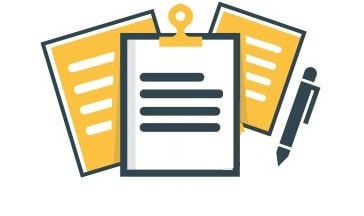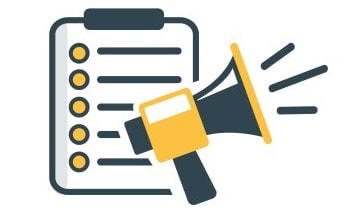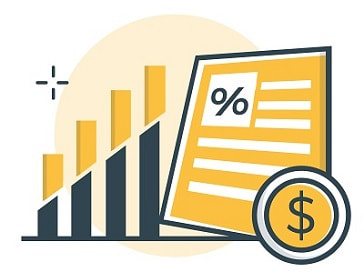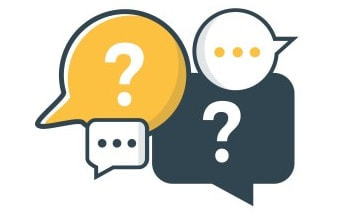Compare Mortgage Options - The Definitive Guide for New Zealand Homeowners
Our guide compares Table Home Loans, Reducing Balance Home Loans, Offset Mortgages, Revolving Credit Mortgages and Interest-Only Mortgages
Updated 23 January 2024
New Zealand banks offer up to five types of mortgage choices, each with a specific interest rate, repayment term and fee schedule. These factors influence the total cost of a mortgage. Our view is that while a standard 25 year fixed repayment mortgage is suitable for many first home buyers, there are more suitable options for those in unique situations.
In this guide, we outline the five mortgage types, their pros, cons and essential considerations. We also list some frequently asked questions to help you make the right choice when it comes to re-mortgaging or applying for a first home loan. Our guide covers:
Know this first: Early Repayments
In this guide, we outline the five mortgage types, their pros, cons and essential considerations. We also list some frequently asked questions to help you make the right choice when it comes to re-mortgaging or applying for a first home loan. Our guide covers:
- The Five Types of Home Loans
- Fixed vs Floating Interest Rates - Choosing the Right Option for Your Mortgage
- Mortgage Types - Frequently Asked Questions
Know this first: Early Repayments
- Generally, a fixed interest rate mortgage doesn't let you make overpayments (i.e. payment beyond what you've agreed in your repayment schedule) without charging a penalty. Some banks have a limit, such as the ASB which allows its customers to increase their fixed interest rate loan repayments by up to $500 per fortnight or $1,000 per month. However, anything over this will incur an early repayment charge.
- With a floating interest rate mortgage, there is no such early repayment charge, meaning the amount you can overpay is as little or as much as you wish.
The Five Types of Home Loans
Our view is simple - the best home loan type is the one that's the most affordable and cost-effective. While most home owners will choose a Table Home Loan, it's not for everyone. Every New Zealander has a unique personal financial situation so it's important to consider all the options before agreeing to a mortgage. To help you, we suggesting contacting a mortgage broker to evaluate your options.
Our list below outlines table home loans (the most common mortgage type), reducing balance home loans (relatively uncommon, but offered by speciality lenders), revolving credit mortgages, offset mortgages, and interest-only mortgages. Please note, we have excluded reverse mortgages as they are a specific retirement-focused product and not relevant to most current and future homeowners.
Our list below outlines table home loans (the most common mortgage type), reducing balance home loans (relatively uncommon, but offered by speciality lenders), revolving credit mortgages, offset mortgages, and interest-only mortgages. Please note, we have excluded reverse mortgages as they are a specific retirement-focused product and not relevant to most current and future homeowners.
Table Home LoansHow Table Home Loans Work:
This is the loan most people choose; it has a regular repayment structure and terms of up to 25 or 30 years. You make principal and interest payments regularly (monthly, fortnightly, or weekly). Your initial payments cover mostly interest. As you pay the balance down, your interest charges decrease, and you pay more toward the principal balance. This is best seen visually in our loan amortisation calculator (table mortgages are structured so that you make fixed payments, and at the beginning you're paying mostly interest). Pros
Cons
What to Consider
Most suitable for:
More Information: |
Reducing Balance Home LoansHow Reducing Balance Home Loans Work:
Reducing balance home loans aren’t very common today, but some banks still offer them. Unlike a table loan, where you make a fixed payment every month, a reducing loan requires a fixed principal payment for the entire term, and the diminished principal will in turn generate less interest charges. As you pay the balance down, your interest charges decrease, as does your overall repayment. Pros
Cons
What to Consider
Most suitable for:
|
Revolving Credit Home LoansHow Revolving Credit Home Loans Work:
If you have equity in your home, you may tap into it with the Revolving Credit Mortgage ("RCM"). This revolving account works much like an overdraft:
Pros
What to Consider
Most suitable for:
More Information: |
Offset MortgagesHow Offset Mortgages Work:
An offset mortgage links your mortgage to your everyday cash savings account (held with the same bank as the mortgage). The total sum of your savings is deducted from your mortgage balance, which reduces your monthly interest costs and repayments. An offset mortgage doesn’t affect the value of your savings. Instead, your savings are deposited with the bank with which you have the mortgage, and their value is ‘offset’ against your mortgage balance. For example, if you have a $500,000 mortgage and $20,000 in cash savings, you’ll only pay interest on $480,000. You won’t earn interest on the cash savings as you usually would while it’s part of the offset mortgage. Pros:
Cons:
What to Consider
Most suitable for:
More information: |
Interest-Only Home LoansHow Interest-Only Home Loans Work:
In an interest only loan, your contributions at the start of the loan don't diminish the principal, they only cover the interest owed on the amount you borrowed. This makes for an attractive option because your mortgage payments would be lower since you are only paying for the interest part of the loan. However, an interest-only loan takes longer to repay overall as the principal remains unaffected so you will need to re-mortgage later on to a table loan and/or find other sources of money to repay the balance owed. You and the bank agree upon the term in which you will repay interest only. This means you only cover the bank charges and don’t pay down your principal balance. This goes on for a predetermined amount of time. Banks require an initial deposit, and if the interest rate is floating (which is typical), there are no fees for early repayment. Once the period ends, you have two choices – refinance into a table loan or pay the principal balance in one lump sum. Most people convert to a table loan, except for property investors who sell the home and pay off the loan. Pros
Cons
What to Consider
Most suitable for:
More information: |
Fixed vs Floating Interest Rates - Choosing the Right Option for Your Mortgage
The majority of homeowners will choose a fixed interest rate for certainty, but an increasing number of homeowners are considering floating rates given the recent drop in interest rates. What's right for you is likely to be what's most affordable. For example, there's no benefit to taking on a fixed interest rate for five years if you believe you will make early repayments.
Before making a decision, evaluate your finances for the next two to five years. If you want a fixed repayment amount, then a fixed interest rate is likely to be the most suitable. However, those wanting to overpay their mortgage month after month may wish to consider floating options and/or a bank that offers a generous fee-free early repayment allowance.
Before making a decision, evaluate your finances for the next two to five years. If you want a fixed repayment amount, then a fixed interest rate is likely to be the most suitable. However, those wanting to overpay their mortgage month after month may wish to consider floating options and/or a bank that offers a generous fee-free early repayment allowance.
Option 1 - Fixed Interest Rate
Fixed rates lock in a specific rate for one to five years. You know your rate for the specified term and can budget accordingly.
How it Works
Pros
Cons
How it Works
- You lock in a rate for the specified term – usually one to five years. When the term expires, you can choose another fixed interest rate loan or a variable rate loan if you feel it’s a better fit.
Pros
- You always know your payments (at least for the specified term). This makes it easier to budget.
- You can lock in an interest rate you feel most comfortable with, and not have to worry about adjustments.
- You don’t have to worry about unexpected payment increases.
Cons
- You cannot make lump sum or early repayments without paying a penalty.
- You don’t get to take advantage of falling rates (if applicable).
Option 2 - Floating Rate
A floating rate changes with the market. It can increase or decrease at any given moment, which means you never know your true interest rate because it fluctuates.
How it Works
Pros
Cons
How it Works
- Most banks tie the floating rate to the Official Cash Rate. When it increases, so does your mortgage rate, but when it decreases your payment falls. Your bank must notify you of the new rate anytime it changes, and it must inform you of the new repayment amount.
Pros
- You can take advantage of falling rates and save money on your payments.
- You are free to make lump sum or extra repayments at any time
Cons
- The unpredictability can be too much for some people to handle and if rates get too high, it can make your payment unaffordable.
Mortgage Types - Frequently Asked Questions
Selecting the right mortgage takes time if you want to ensure you make the right decision. Our frequently asked questions help anticipate what's most important.
Can you split your interest rate between fixed and floating rates?
Yes, most banks allow you to split your mortgage into two portions – one with a fixed rate and one with a floating rate. You can make extra repayments on the floating portion, but not on the fixed rate portion.
Should borrowers with irregular income choose a table loan?
Table loans are the most predictable option, but also the hardest for borrowers with unpredictable income. If you aren’t sure if you can comfortably afford the payment no matter your income, it may not be the best option.
Do you earn interest credit on your savings tied to Offset Loans?
No, any accounts you link to your offset loan do not earn interest from the bank that holds it. Instead, you save on the interest you would have paid on that amount of your mortgage. Overall, it's likely you'll save more - mortgage interest rates are often much greater than the bank account savings rates (i.e. 3.59% mortgage rates vs a 1.50% bank interest rate).









